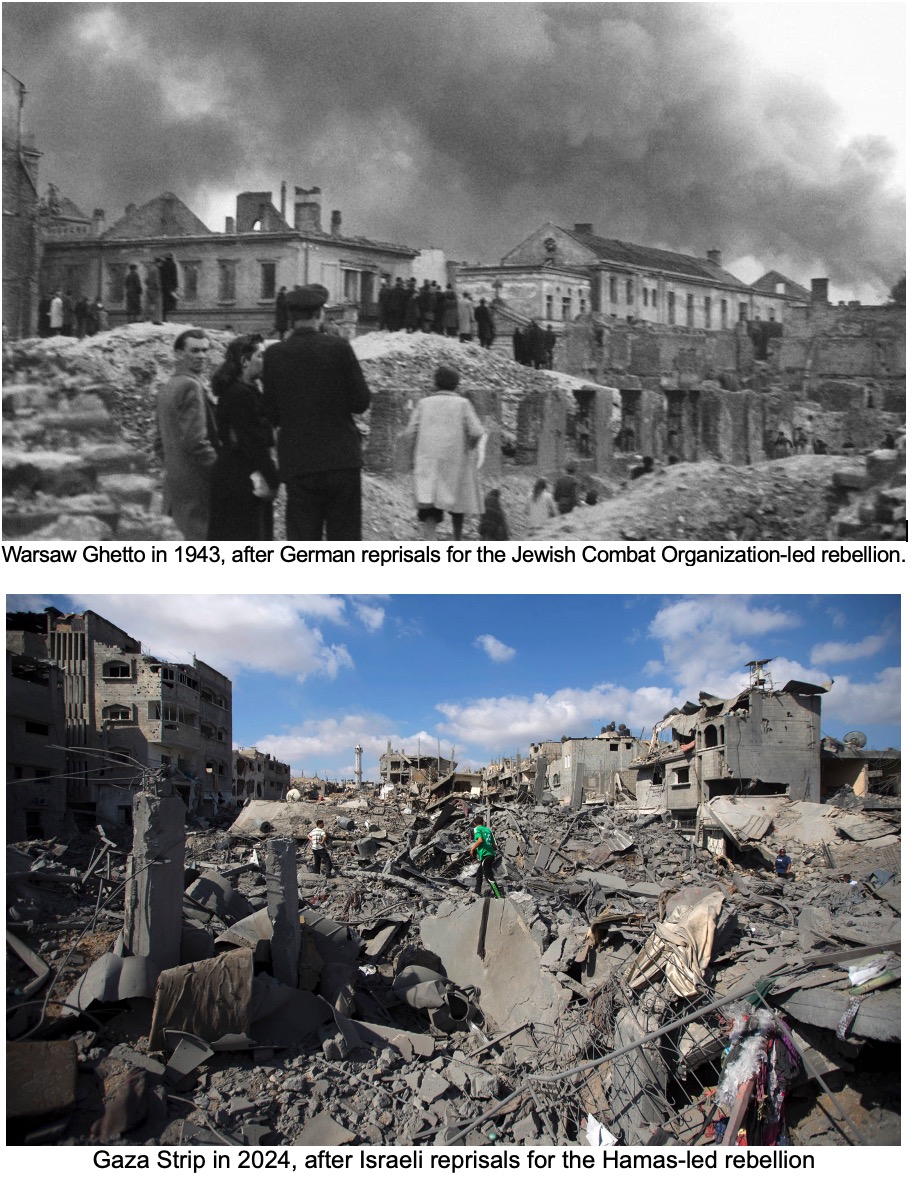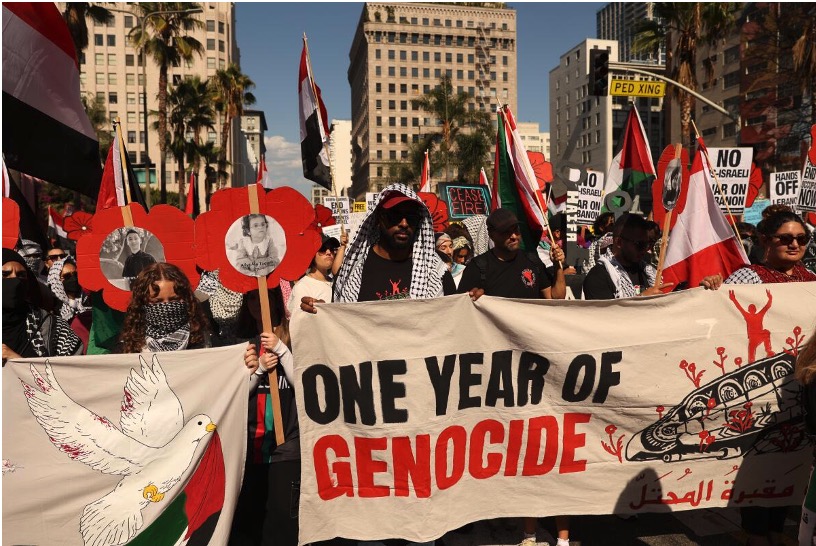Comments
ISRAELI WAR - In the past year western Asia has experienced tremendous political changes, which will continue. Israel has killed over 42,000 Gazans, with the actual count much higher because of starvation, infectious diseases, and bodies buried under rubble. After one year Hamas fighters are still ambushing Israeli troops, and Hamas has replaced its casualties with new volunteers. The Israeli Defense Forces (IDF) continues to destroy homes, public buildings, infrastructure, and tents, but is unable to defeat Hamas despite unlimited bi-partisan US government diplomatic and military support.

To the north, Israel has targeted Hezbollah fighters and Lebanese civilians from the air, destroying many neighborhoods with enormous 2000 pound bombs provided by the US government. As for the land invasion of Lebanon, Israel is stuck in border areas because of fierce Hezbollah opposition. Apparently but predictably, the decapitation of Hezbollah’s leaders has not impacted the group’s political role in Lebanon’s parliament and ability to resist another Israeli land invasion.
Other military actors are the Houthis in Yemen and paramilitary groups in Iraq, both of which attacked Israeli military installations with missiles. In addition, the Houthis have withstood direct US air attacks and continue to block shipping to Israel’s Red Sea port of Eilat.
The other actor is Iran, which is climbing the military escalation ladder with Israel. Despite Israeli denials, Iranian missiles successfully reached Israeli bases. As of October 10, the expected Israeli counter-attack has not yet happened, probably because the Biden administration opposes the destruction of Iran’s oil fields. The reasons are obvious. Right before the US presidential election, such attacks could draw the US into a direct war with Iran and would cause gasoline prices to soar.
Furthermore, domestic opposition to US support for Israeli military actions against Gaza, Yemen, Lebanon, Syria, and Iran has grown despite pro-Israel coverage on corporate news sites and censorship of alternative news sites. Furthermore, public opinion polls consistently reveal that the US public is at odds with the Republican and Democratic Parties’ support for the Israeli government’s military actions.
October 5 anniversary march in Los Angeles: At least 30 US and Canadian cities saw marches and demonstrations marking the first anniversary of the Gaza war, most receiving cursory news coverage, such as a large anti-Gaza genocide march in downtown LA on October 5.
Here are my impressions of this march, which substantially differ from the few press reports I could find.

October 5, 2024, pro-Palestine demonstration and march in Downtown Los Angeles.
The march was large, with demonstrators filling five blocks of streets -- sidewalk to sidewalk -- in Downtown LA. Unlike previous demonstrations, however, there were no television crews or identifiable reporters. Furthermore, the LAPD was not there either. This large march was completely peaceful, without a hint of anti-Semitism, which pro-Israel groups like the Anti-Defamation League, regularly use to smear pro-Palestinian groups. No speakers or picket signs even mentioned Jews, much less called for violence against Jewish individuals or institutions.
There was also no discussion of the upcoming US presidential election even though the two major US political parties enable Israeli genocide in Gaza and military attacks on Lebanon. While the most interesting picket signs were homemade, the most striking visual feature of the march were two symbols of Palestinian nationalism: flags and headdresses (kaffiyehs). Unlike previous anti-war demonstrations, though, only one speaker mentioned US imperialism. Instead, most speakers spoke about Intifada, an Arabic word now loosely translated as an uprising.
Another surprising feature of this anniversary march was the absence of two Jewish groups, Jewish Voice for Peace and If Not Now, both of which played a prominent role in college encampments, like UCLA’s, and non-campus anti-Gaza war actions.
What does this lead to? If the Palestinian Youth Movement, the sponsor of this event, and their allies, succeed, they may be able to temporarily end ethnic cleansing and genocide. But, if their victory keeps an unequal economic structure, Palestinian elites will dominate a future state. They will offer underpaid labor to foreign investors, resulting in huge profits for the elites and the investors. How long this situation can be camouflaged by slogans celebrating Palestinian national liberation is unknown, even if the new leaders speak Arabic. As for the legal status of remaining Israeli Jews in this new state, the speakers were silent.
Since this march was so large, I need to repeat that these are my impressions. I may not have heard other anti-imperialist speakers or seen picket signs which went beyond Palestinian national liberation slogans.
(Victor Rothman is a California-based policy analyst).






